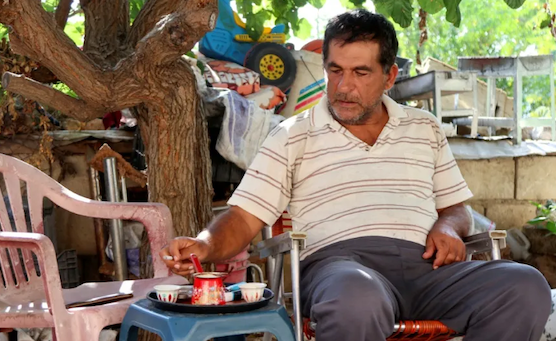|
إستماع
Getting your Trinity Audio player ready...
|
COMMENTARY: The greatest hope of the people of Rmeish is to live in peace. Israel and Hezbollah have other priorities.
Sometimes small things vividly illustrate and reveal larger truths. Rmeish is a small town in southern Lebanon close to the Israeli border. It is a mostly Christian town, with about 99% of the entire population being Maronite Catholics, one of a handful of Christian villages in a region dominated by the Shiite Muslim majority in Lebanon’s South.
The greatest hope of the people of Rmeish is to live in peace. But being so close to the border has meant that it has been a close observer and unwilling bystander to wars, including the war launched on Oct. 8, 2023 by the Lebanese terrorist organization Hezbollah against Israel. While Hezbollah has used much of the border region to strike Israel, prompting heavy Israeli return fire, Rmeish has managed — just barely — to stay above the fray.
In March 2024, locals discovered that Hezbollah militants were trying to set up a rocket launcher in the town, a step that would have provoked a harsh Israeli response. According to Beirut’s L’Orient Le Jour, “The situation escalated to the point where the Hezbollah members started firing bullets into the air while the residents rang the bell of a church in the village.” The locals succeeded in protecting their town that day and received expressions of solidarity from Lebanese Christian leaders in Beirut. Hezbollah’s intimidation of Christians in the South, even up to outright murder, is not uncommon and has happened for decades.
The war has continued, however, and in early October 2024 the Israeli Army entered Lebanon’s border region to push back Hezbollah forces. The Israeli operation, targeting a dense network of infrastructure, weapons and tunnels honeycombed in and under Shiite Muslim villages and used by Hezbollah to launch more than 9,000 rockets against Israel, has been extremely destructive.

Rmeish has stood apart. It has been able to prevent itself from becoming a combat zone or a missile launching pad and has not been destroyed. That fact alone has made the town the target of a Hezbollah propaganda blitz on social media, accusing the town’s inhabitants of being traitors for not participating in Hezbollah’s war.
One large pro-Hezbollah X account, @WarMonitors, with more than 1 million followers, on Oct. 18 warned the inhabitants of the town against “making any mistakes,” presumably mistakes in even thinking of collaborating with the Israelis in any way. Hezbollah relies on front organizations and local proxies to apply the pressure and intimidation. Lebanese law is draconian on such matters and there is a pattern of the Lebanese government investigating individuals for even the merest suspicion of any contact with Israelis.
While some locals have fled to Beirut, many inhabitants have remained in their ancestral village. Indeed, they have welcomed hundreds of displaced Lebanese, both Shiite Muslims and Christians, from other villages in the region as “guests of Rmeish” and housed them in a local monastery. Others were sheltered in the homes of the people of Rmeish. Many came from Ain Ebel, a village that the Israelis had ordered evacuated.
With the war raging all around them, food has grown increasingly short. At one point in late October, there was no flour left to make bread. Contact with the outside world is intermittent. A humanitarian convoy was able to evacuate the villagers of Ain Ebel but the roads are dangerous and the sound of fighting and bombing between Hezbollah and Israel can often be heard easily in the town. The inhabitants that remain long for the permanent deployment of the Lebanese Army and Police and the departure of both Hezbollah and the Israelis.
The pattern of Christians caught between two fires in the Middle East is tragically a common one. Palestinian gunmen in 2002 fleeing the Israelis holed up for 39 days in Bethlehem’s Church of the Nativity, the holy place marking the site of the manger where the Lord Jesus was born.
In Egypt, rural Christians have to tread carefully in the face of threats from both Muslim extremists and from the security forces that combat them. The decades-long war between the Turkish Army and PKK Kurdish insurgents was a direct cause in the depopulation of the Syriac Christian villagers in the Tur Abdin, “the Mountain of the Worshippers of God,” an ancient and, until 50 years ago, majority Christian refuge in southern Anatolia. In northern Iraq, Christian villages faced the depredations of Sunni Muslim jihadists a decade ago and then the continued intimidation of the Shiite Muslim militias today that had helped push the Jihadists out.
As the war in Lebanon rages, and innocents are killed both north and south of the Lebanon-Israel border, we should remember and pray for the Christians of Rmeish, our brothers and sisters who have shown great steadfastness and hospitality in this current calamity. The dangers they face are not only the destruction of war drawing dangerously close but the threat of being scapegoated or demonized by others for rejecting a war not of their choosing.


